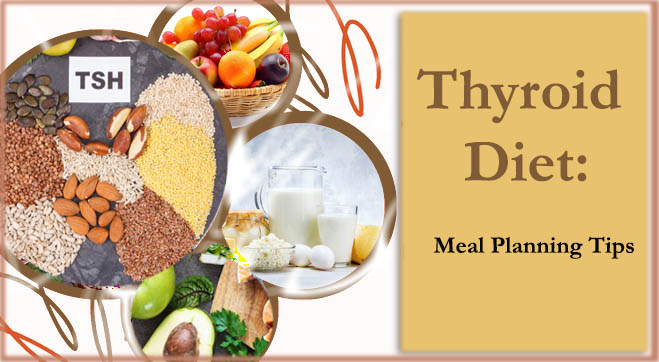Not every fruit contains the same amount of carbohydrates.
Fruits are the cornerstone of any healthy diet because they are nutrient-dense foods. Their abundance of vitamins, minerals, and antioxidants may lower the chance of developing diabetes, heart disease, and some cancers.
Because of their natural sugars, fruits have higher carbs than vegetables, but that should not be a cause for concern.
Nonetheless, those on a low-carb diet, such as the ketogenic diet, need to watch how much carbohydrate they consume. For instance, some people might have to reduce their banana intake. With only 27 grams of carbohydrates in a medium banana, this well-liked fruit is also high in fiber, potassium, vitamin B6, and vitamin C. Still, those on a low-carb diet might not find this fruit appealing.
Table of Contents
For a low-carb diet, the following are the top fruits:
Watermelon
11.5 grams of carbohydrate Dimensions: 1 cup (154 grams) dry watermelon
Watermelon is a ripe, sweet fruit that is low in carbohydrates and has a delicious flavor. Watermelon is also an excellent post-workout treat because it’s high in water content, low in calories, and rich in antioxidants and potassium.
Kiwi
A serving size of one Kiwi (75 g) contains 10.5 g of carbohydrates.
Kiwi has a low glycemic index, which gauges how rapidly blood sugar levels rise. Low-glycemic foods absorb more slowly and may be beneficial for blood pressure management.
Papaya
17.8 grams of carbonates A single serving is one cup (165 g).
Papayas are tropical fruits rich in fiber and papain, an enzyme that breaks down proteins to support digestive health. They are also rich in antioxidants, vitamins A, C, folate, magnesium, and other nutrients.
Due to its high carbohydrate content per serving, papaya may turn off keto dieters, but when consumed in moderation, it can still be a part of a low-carb diet.
Coconut
One cup of shredded coconut (80 grams) contains 12.2 grams of carbohydrates.
You may add fresh coconut to soups, sauces, salads, and desserts.
Coconuts contain a lot of saturated fat; therefore, you should consume fewer of them. However, when handling desiccated coconut goods, use caution because they are high in sugar.
Prunes
10.2 grams of carbohydrates, or two Prunes’ worth
Registered nutritionist Erin Palinski-Wade said, “Prunes have a low naturally occurring sugar content and a glycemic index of just 29, which means they have a favorable impact on blood sugar levels when compared to other dried fruits. But its effect will be diminished.” Sparta, a native of New Jersey, is the author of “The 2-Day Diabetes Diet.”.
Prunes’ fiber promotes regularity in the digestive system and helps you feel full, both of which support stable blood sugar levels.
Research indicates that Prunes consumption may maintain strong bones. Eating 50 grams of Prunes per day may help postmenopausal women lose less total hip bone mineral density, according to a study published in the American Journal of Clinical Nutrition in October 2022.
To reap the benefits of prune consumption, eat them on their own, add them to salads, or even use them as a sweetener.
Guava
In total, there are 7.86 grams of carbs. A typical guava weighs 55 grams.
Because of its many nutritional and physiological advantages, guava is frequently referred to as the “Queen of Fruits.”
Researchers have linked this tropical fruit to improved digestion, reduced blood sugar, heart health, weight control, and anti-cancer effects. It has high levels of fiber, antioxidants, potassium, and vitamin C.
Carambola is a star fruit.
Carbs: 6.7g Serve 1 medium-star fruit (91 grams).
Star fruit, or carambola, is a delectable Southeast Asian tropical fruit. The waxy, yellow-green star fruit looks like a five-pointed star when split in half. Fruit meat is mild, sweet, and sour, and the peel is edible.
You can eat star fruit raw, garnish it, or add it to salads.
Tomatoes
Carbs: 4.8g Serve 1 medium tomato (123 grams).
In addition to minimal carbs, tomatoes include vitamin C, beta-carotene, and lycopene. These minerals benefit your health in many ways.
Insufficient vitamin C can cause scurvy, which causes sadness, bleeding gums, and tooth loss. A 2020 study in antioxidants suggested beta-carotene may protect eyes. A 2020 antioxidant review found that lycopene protects against heart, liver, bone, skin, neurological, and reproductive system disorders.
Tomatoes are versatile. Add them to salads, spaghetti, or non-starchy vegetable sauces, as well as soups like tomato cream and gazpacho. A grilled veggie kabob or sheet pan meal with feta and vegetables tastes great with tomatoes.
Apricots
3.9 g carbs Serve 1 apricot (35 grams).
Apricots are excellent for low-carb diets.
This delicious stone fruit has vitamins A, C, potassium, beta-carotene, and lutein.
Many ways to enjoy fresh apricots. You can cut them for cereal, salads, and waffles. Grill apricot slices with a little olive oil for a healthy snack. Apricots make a healthy morning parfait or smoothie when mixed with yogurt or your favorite milk.
Figs
Carbs: 9.6g Each serving contains two tiny figs (50 grams).
Figs are usually available in early summer, but they may be accessible in late summer and early fall. All fig parts—light meat, dark purple skin, and seeds—are edible. It’s OK to peel the skin and/or remove the seeds. You can bake, grill, or eat figs raw.
Figs are tasty in salads, oatmeal, and snacks.
Cantaloupe
Carbs: 12.6g, Serves 1 cup (155 grams).
This delightful summer fruit is rich in water, fiber, and vitamins.
It’s high in potassium, which aids post-workout recovery.
There are many ways to eat cantaloupe. A nutritious fruit salad, chilled soup, or grilled prosciutto pasta salad can include cantaloupe slices.
Avocados
Carbs: 12.8g, Serve 1 avocado (150 grams).
Avocados are high in heart-healthy unsaturated fats.
Avocados may help manage weight, according to research. A big 2019 Nutrient study demonstrated that routinely eating avocados reduced excess weight and weight gain in normal-weight people.
In March 2022, the Journal of the American Heart Association published major research involving over 68,000 women and 41,000 men without cancer, coronary heart disease, or stroke. Avocado consumption was linked to a decreased risk of cardiovascular illness and coronary heart disease, suggesting that substituting fat-containing meals with avocado may reduce the risk of cardiovascular disease.
You can slice avocados and eat them with lime and cayenne pepper, over toast, or in salads. You can add avocado pieces to soups.
Plums
Carbs: 7.5g, Serve 1 plum (66 grams).
Plums, juicy and sweet stone fruits rich in antioxidants and vitamins A and C, make a fantastic snack or lunch.
Here are three more plum uses:
Grilled plums: Brush plums with olive oil and grill until browned. You can enjoy grilled plums as dessert, in salads, or paired with grilled meat.
Salad ingredients: Plum slices enhance spinach and couscous salads.
Roasted plum slices with oatmeal: a wonderful alternative to berries or banana slices.
Lemon
Carbs: 6.1, Serve 1 lemon (65 grams).
Lemon slices may not seem pleasant, but adding them to drinks and foods is a tasty way to reap their health benefits. Lemons are fantastic for low-carb eating, whether you squeeze them into your water, mix them into smoothies, or use them in recipes. Though they’re low in carbohydrates, they’re abundant in vitamins and minerals.
Lemons are rich in potassium, calcium, iron, and vitamin B6, but they are especially high in vitamin C, providing 45 milligrams and 74% of your daily intake.
Meyer lemons, a hybrid of a lemon and a mandarin orange, are sweeter and less acidic than normal lemons. These fruits are similar, but Meyer lemons have less vitamin C (31 milligrams). It’s still a strong vitamin source at 34% of your daily intake.
Strawberries
Carbs: 8.2g, Serving: 150 grams per cup
Strawberry superfoods include vitamin C, calcium, iron, potassium, folate, magnesium, and anthocyanins, an antioxidant that gives them their red color.
Strawberry season is in June in much of the U.S., but strawberries, especially frozen ones, are accessible year-round, making them a flexible, low-carb fruit. They may be eaten raw or blended into a healthy smoothie like this strawberry-rhubarb smoothie.
Raspberries
Carbs: 17.8g, Serving: 150 grams per cup
Raspberry is a low-carb fruit that contains dietary fiber to promote digestion, a healthy gut, and antioxidants to fight oxidative stress and inflammation. Vitamin C in this bite-sized fruit boosts immunity and skin health, making it a nutritional powerhouse.
Blackberries
Carbs: 13.8g, Serving: 144 grams per cup
Blackberries include vitamin C, vitamin K, and fiber to support the immune system and digestion.






